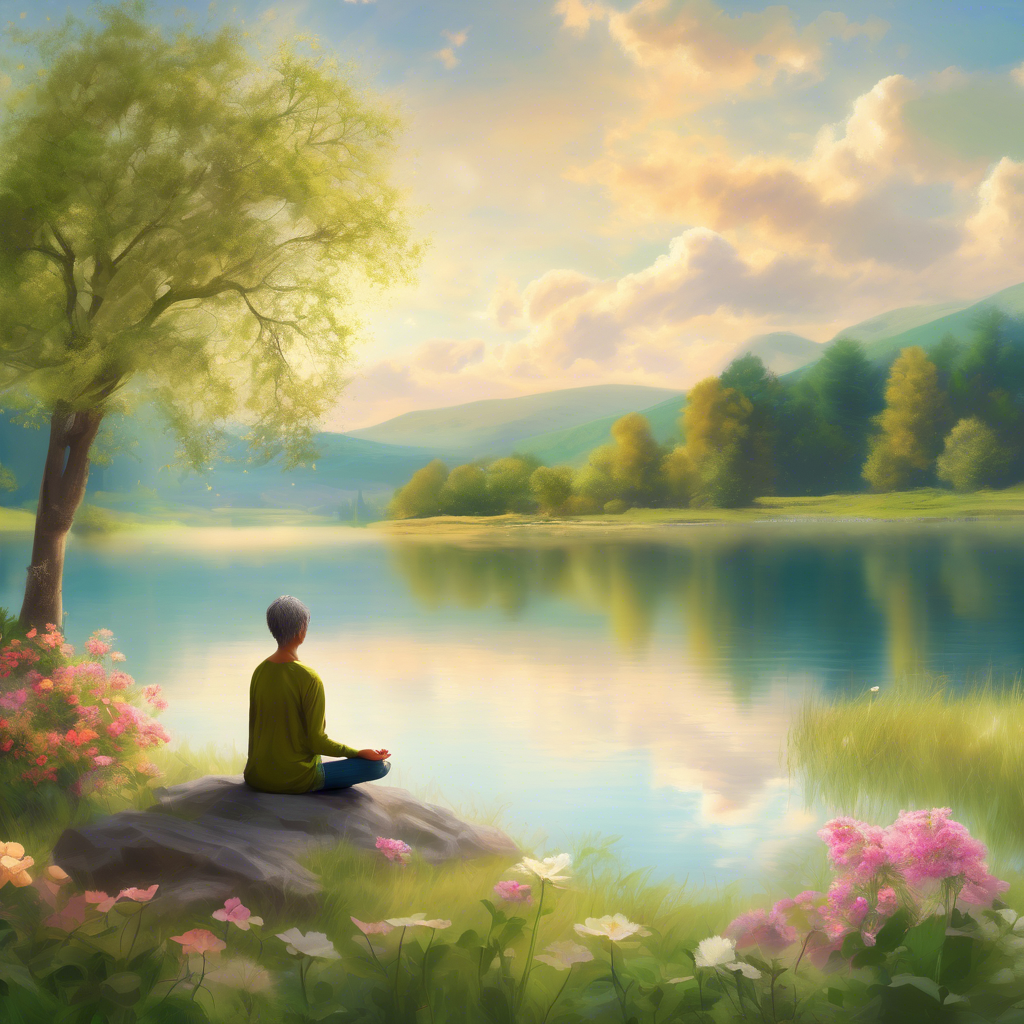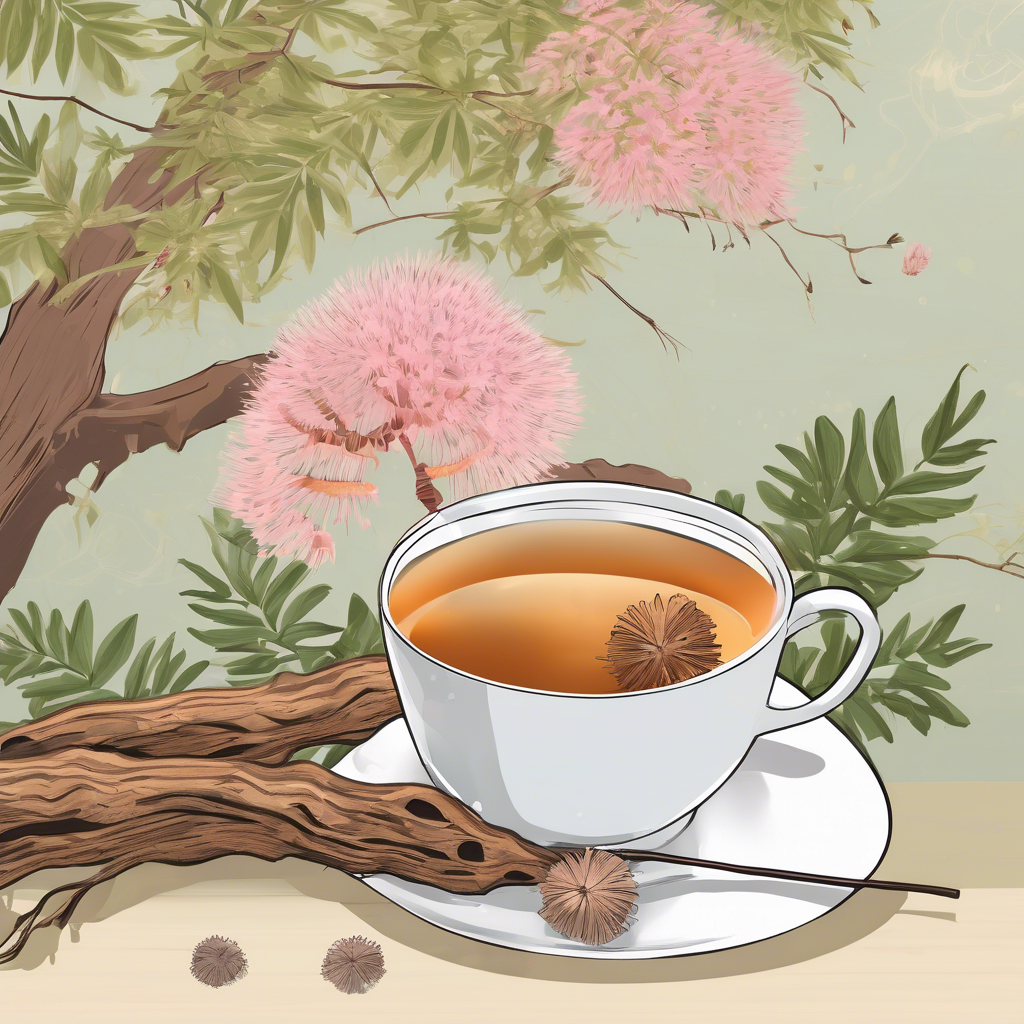Top Chinese Herbs for Natural Anxiety Relief & Emotional Calm
(Backed by TCM Wisdom & Modern Research)
Albizia Bark (He Huan Pi)—known in Traditional Chinese Medicine as the “Herb of Happiness”—is traditionally used to help calm the spirit (Shen), ease occasional stress, and support a peaceful mood. Its sweet, neutral nature makes it a favorite in herbal blends for those seeking natural calm without drowsiness, emotional balance, and more restful sleep. For enhanced results, it is often paired with Suan Zao Ren (Ziziphus seed) for deep relaxation or He Huan Hua (Albizia flower) for a gentle mood lift.
Shop Albizia Bark Now GMP-Certified • Lab-Tested for Purity & Safety
Why Trust This Guide
-
Author: Sarah Aries M.S., Holistic Healing, 25+ years in herbal education & product sourcing.
-
Quality Promise: All herbs are sourced from GMP-certified facilities and third-party lab-tested for identity and purity.
-
Transparency: Sourcing details and Certificates of Analysis are available upon request.
These statements have not been evaluated by the Food and Drug Administration. These products are not intended to diagnose, treat, cure, or prevent any disease.
 Why Emotional Balance Isn’t One-Size-Fits-All
Why Emotional Balance Isn’t One-Size-Fits-All
Emotional balance is a complex and individualized journey, especially when viewed through the lens of Traditional Chinese Medicine (TCM). TCM recognizes that various emotional and psychological issues, such as anxiety, stress, and sleep difficulties, are manifestations of internal disharmony within the body. Rather than applying a universal treatment approach, TCM emphasizes the importance of identifying specific underlying patterns for effective management. Here are some common patterns associated with emotional imbalances:
1. Liver Qi Stagnation
In TCM, the liver is not only responsible for the smooth flow of Qi (energy) but also plays a vital role in emotional regulation. When Liver Qi becomes stagnant, it can lead to a buildup of emotional tension. This stagnation often manifests as:
- Irritability: Individuals may find themselves more easily frustrated or angered by minor issues.
- Tension: Physical tension often accumulates in the body, particularly in the shoulders and neck.
- Mood Swings: Fluctuating emotions can lead to unpredictable responses to stressors, impacting relationships and daily life.
To address Liver Qi stagnation, TCM may recommend herbal remedies, acupuncture, and lifestyle changes that promote relaxation and emotional expression.
2. Heart Shen Disturbance
The heart in TCM is closely associated with the mind and spirit (referred to as Shen). When the heart is disturbed, individuals may experience symptoms that affect their mental and emotional well-being. This condition is characterized by:
- Restlessness: A constant feeling of unease or inability to settle down, often accompanied by racing thoughts.
- Vivid Dreams: Disturbing or intense dreams that can disrupt sleep and contribute to feelings of anxiety upon waking.
- Trouble Sleeping: Difficulty falling or staying asleep, leading to fatigue and decreased overall well-being.
To restore balance, TCM may suggest calming herbal formulas, meditation practices, or techniques such as acupuncture to promote relaxation and nurturing of the heart.
3. Yin Deficiency
Yin is the nourishing and cooling aspect of our body, and its deficiency can create an imbalance that affects emotional stability. Individuals with this pattern may experience:
- Night Sweats: Excessive sweating during sleep, often accompanied by chills and discomfort.
- Heat Sensations: Feelings of internal heat, which can manifest as irritability and physical discomfort.
- Difficulty Calming the Mind: An overactive mind that is hard to quiet, making it challenging to relax or feel at peace.
Restoring Yin balance often involves TCM therapies that emphasize nourishment, such as dietary adjustments, herbal supplements that tonify Yin, and practices that promote grounding and calming.
Conclusion
Understanding that emotional balance requires a personalized approach is essential for achieving well-being. By recognizing the distinct patterns of disharmony outlined by TCM, individuals can pursue tailored treatments that address their unique emotional challenges. Whether through herbal medicine, acupuncture, lifestyle changes, or mindfulness practices, a holistic approach can help restore harmony and facilitate a more balanced emotional state.
Hero Herbs for Calm & Emotional Clarity
In the quest for emotional balance and clarity, certain herbs have stood out in traditional practices, particularly in Traditional Chinese Medicine (TCM). These "hero herbs" are not only revered for their soothing properties but also for their ability to uplift the spirit and enhance mental well-being. Below, we delve into these powerful botanicals and the scientific research supporting their benefits.
Albizia Bark (He Huan Pi) — “Tree of Happiness”
Albizia Bark, often referred to as the “Tree of Happiness,” has a long-standing reputation in TCM for its ability to uplift the Shen (mind/spirit) and support emotional well-being.
-
Traditionally Used: This herb is known for its calming properties, making it a valuable ally during periods of occasional stress. It works by promoting relaxation, making it easier to navigate life's challenges with a peaceful mind.
-
Synergistic Pairing: For those seeking deeper sleep support, Albizia Bark pairs exceptionally well with Suan Zao Ren (Ziziphus Seed), enhancing the overall effectiveness in fostering restful slumber.
-
Research Insight: Studies on Albizia’s flavonoids reveal mood-modulating effects by regulating neurotransmitters, which can lead to enhanced emotional stability (PubMed). This underscores its potential as a natural solution for managing mood fluctuations.
Suan Zao Ren (Ziziphus Seed)
Suan Zao Ren plays a crucial role in anchoring the Shen and supporting natural sleep patterns.
-
Traditional Uses: It has been historically utilized for addressing restlessness and occasional wakefulness, making it an ideal choice for those experiencing difficulty in achieving restful sleep.
-
Gentle and Non-Habit-Forming: This herb is gentle on the system and does not create dependency, setting it apart from many conventional sleep aids.
-
Research Findings: A clinical trial documented on ScienceDirect shows significant improvements in sleep quality and reduced anxiety scores among participants using Suan Zao Ren. This offers compelling evidence for its efficacy in promoting sleep and emotional calmness.
He Huan Hua (Albizia Flower)
He Huan Hua, the flower of the Albizia tree, is often described as gentle and joy-lifting, earning it the nickname "herb for a broken heart" in TCM.
- Emotional Benefits: Beyond its soothing qualities, it is believed to promote feelings of love and joy, making it a lovely addition for those looking to mend emotional wounds and cultivate happiness.
Yuan Zhi (Polygala Root)
Yuan Zhi is recognized for its ability to support mental clarity and emotional stability.
-
Cognitive Support: This herb is particularly useful for clearing mental fog caused by stress, enhancing one’s ability to think clearly and focus on tasks.
-
Combination for Calm Focus: Often paired with Albizia, Yuan Zhi creates a blend that fosters “calm focus,” allowing individuals to remain relaxed yet alert.
Conclusion
Incorporating these hero herbs into your wellness routine can provide natural support for emotional clarity and relaxation. Each herb offers unique benefits tailored to enhance mental and emotional health, making them valuable allies in the journey towards better well-being.
As with any herbal remedy, consider consulting with a healthcare professional to tailor your approach to your individual needs and ensure safety and effectiveness.
Why These Pairings Work (TCM Theory + Modern Insight)
| Pairing | TCM Benefit | Why It Works |
|---|---|---|
| Albizia + Suan Zao Ren | Anchors Shen, calms restlessness | Supports restful sleep without heavy sedation |
| Albizia + He Huan Hua | Moves stagnant Liver Qi, uplifts mood | Ideal for frustration and irritability |
| Albizia + Yuan Zhi | Calms Shen, clears phlegm from Heart | Enhances focus while easing tension |
Albizia Bark with Lifestyle Support
Google prefers herb content paired with lifestyle recommendations — here’s your Calm Toolkit:
-
Breath-Swallowing Meditation — 5 minutes before bed
-
Evening Qigong — Balances Liver & Heart energy
-
Digital Sunset — Power down devices 1 hour before sleep
-
Journaling Ritual — Helps “move” stagnant emotions out of the body
 Chinese Herbs for Anxiety and Sleep
Chinese Herbs for Anxiety and Sleep
In Traditional Chinese Medicine (TCM), restful sleep and emotional calm go hand in hand. Herbs such as Albizia Bark (He Huan Pi) and Suan Zao Ren (Ziziphus Seed) are traditionally used to quiet the Shen (spirit) and support a peaceful night’s rest.
-
Albizia Bark – uplifts the mood while easing emotional tension.
-
Suan Zao Ren – helps maintain restful sleep without the next-day grogginess associated with some remedies.
Pro Tip: These herbs can be combined in a balanced formula to target both daytime stress and nighttime rest.
Natural Calm Without Side Effects
Many consumers seek herbal approaches because they want to avoid the heavy sedative effects of certain pharmaceuticals.
Chinese herbs like He Huan Hua (Albizia Flower) and Yuan Zhi (Polygala Root) work gently, supporting emotional balance without “knocking you out” or impairing focus.
-
Gentle, gradual results without dependency.
-
Can be taken during the day to maintain a clear, calm state.
 Herbal Tea for Emotional Balance
Herbal Tea for Emotional Balance
Brewing a tea with calming Chinese herbs is one of the easiest and most enjoyable ways to weave emotional balance into your daily routine. In Traditional Chinese Medicine (TCM), a well-chosen tea can help soothe the Shen (spirit), relax the body, and support a more even emotional state — all without heavy sedation.
A Gentle, Calming Blend
Consider this balanced combination:
-
Albizia Bark (He Huan Pi) – Traditionally used to help lift the mood, calm emotional agitation, and ease occasional tension.
-
Suan Zao Ren (Ziziphus Seed) – Known for anchoring the Shen and supporting more restful, uninterrupted sleep.
-
Chrysanthemum Flower (Ju Hua) – Offers a cooling, soothing effect that can ease mild irritability and calm the mind.
How to Brew for Maximum Benefit
For best results, use a decoction method — simmering herbs gently to draw out their beneficial compounds — or steep them for a longer period than typical teas.
Basic Decoction Directions:
-
Combine 9–15 g total herbs in a small saucepan.
-
Add 3–4 cups of water.
-
Bring to a gentle boil, then reduce heat and simmer for 20–30 minutes.
-
Strain and enjoy warm.
Quick Steep Method (Mild Flavor):
-
Place herbs in a large tea infuser or French press.
-
Pour just-off-boiling water over them.
-
Steep 10–15 minutes for a lighter, more delicate tea.
When to Drink
-
Afternoon Reset: Enjoy when work stress builds or mood feels unsettled.
-
Evening Wind-Down: Sip 1–2 hours before bedtime to promote a calm, restful transition into sleep.
Make it a Ritual
Pair your tea time with slow breathing exercises, a short walk, or quiet reading. Consistency matters — over time, the ritual itself becomes a signal to your nervous system that it’s time to relax.
Calm Shen Formula
The Shen in TCM refers to the mind and spirit. A Calm Shen formula is designed to harmonize the heart, soothe the liver, and anchor the spirit.
Common ingredients include:
-
Albizia Bark or Flower
-
Suan Zao Ren
-
Yuan Zhi
-
Bai He (Lily Bulb)
These blends are often used by herbalists to maintain emotional equilibrium, improve mood stability, and promote peaceful sleep.
Stress Support Herbs in TCM
Stress is often viewed in TCM as a result of Liver Qi stagnation, overactive Yang, or depletion of Yin. Depending on the root pattern, different herbs may be chosen:
-
Liver Qi Stagnation – Albizia Bark, Bupleurum Root
-
Heart Shen Disturbance – Suan Zao Ren, Yuan Zhi
-
Yin Deficiency – Bai He, Mai Men Dong
The key is choosing the right herb or formula for your unique pattern rather than a one-size-fits-all approach.
What Our Customers Are Saying
"I wanted something gentle that wouldn’t make me groggy. Albizia Bark and Suan Zao Ren tea have become my evening ritual. I feel calmer, and my sleep feels more settled."
— M.L., Spokane, WA
"The Calm Shen Bundle has been part of my daily routine for a month now. It’s like my brain takes a deep breath every time I drink the tea. I didn’t realize how much I needed that."
— R.K., Portland, OR
"I keep a small jar of Albizia powder at my desk. Just knowing I have it for when my day gets stressful is reassuring."
— S.J., Austin, TX
"I’ve tried a lot of things for tension, but the combination of Albizia Bark and Yuan Zhi works beautifully for me. It feels like a smooth, steady calm."
— P.T., Sacramento, CA
Consumer FAQs
Q: Will Albizia make me sleepy?
A: Albizia is traditionally used to support emotional balance and enhance relaxation without inducing drowsiness. It is considered more of a gentle calming herb, which means it helps in alleviating stress and anxiety without the heavy sedative effects associated with some other herbs. However, if Albizia is combined with stronger sedative herbs, it could potentially lead to feelings of sleepiness. It's advisable to monitor your body's response if combining treatments and to consult with a healthcare professional if you have concerns.
Q: How long can I use Suan Zao Ren?
A: Suan Zao Ren has a long history of use in traditional herbal medicine and is typically consumed for weeks to months as needed for sleep support and to ease restlessness. However, it is always best to follow the guidance of your herbalist or healthcare provider, who can provide personalized recommendations based on your individual health status and needs. They can also help you determine the appropriate dosage and duration of use to achieve optimal benefits.
Q: Can I combine these herbs with medications?
A: It is crucial to consult with your healthcare provider before combining any herbal remedies like Albizia or Suan Zao Ren with prescription medications. Herbal supplements can interact with various medications, potentially enhancing or diminishing their effects. A healthcare professional can guide you in understanding potential interactions and ensure that your overall treatment plan is safe and effective.
Related Links
References
Albizia Bark (He Huan Pi)
-
Serotonin transporter (SERT) modulation (mechanistic support) – MDPI, Pharmaceuticals (2022)
“Noncompetitive Inhibition of the Serotonin Transporter by Albizia Lignan Glycosides” — suggests a plausible mood-support mechanism.
https://www.mdpi.com/1424-8247/15/3/344 -
Sedative constituents from Albizia flower – Journal of Ethnopharmacology (ScienceDirect)
“Sedative activity of two flavonol glycosides from Albizzia julibrissin Durazz.” — identifies calming phytochemicals in the flower.
https://www.sciencedirect.com/science/article/abs/pii/S0378874199002020 -
General pharmacology review (anxiolytic/antidepressant/antioxidant themes)
A broad review of A. julibrissin constituents and activities (useful for background and DSHEA-safe phrasing).
https://pubmed.ncbi.nlm.nih.gov/?term=Albizia+julibrissin+review+pharmacology
Suan Zao Ren (Ziziphus seed)
-
Systematic review/meta-analysis on insomnia – Complementary Therapies / JEP (examples via PubMed search)
Multiple clinical and observational studies explore sleep quality with Suan Zao Ren preparations.
https://pubmed.ncbi.nlm.nih.gov/?term=Ziziphus+spinosa+insomnia+randomized
https://pubmed.ncbi.nlm.nih.gov/?term=Suan+Zao+Ren+insomnia+trial -
Sleep quality & anxiety measures (human data exist)
Broader search capturing RCTs and controlled studies on Ziziphus and sleep/anxiety endpoints.
https://pubmed.ncbi.nlm.nih.gov/?term=Ziziphus+jujuba+seed+sleep+anxiety+trial
He Huan Hua (Albizia flower)
-
Sedative glycosides (same primary discovery as above) – J Ethnopharmacol
Calming constituents isolated from the flower; useful when you discuss “joy-lifting”/spirit-calming synergy with bark.
https://www.sciencedirect.com/science/article/abs/pii/S0378874199002020 -
Supporting pharmacognosy / phytochemistry (broader Albizia flower)
Round-up queries for flower-focused chemistry/activities to cite without over-claiming.
https://pubmed.ncbi.nlm.nih.gov/?term=Albizia+julibrissin+flower+sedative
Yuan Zhi (Polygala tenuifolia)
-
Neuroprotective / cognition support – PubMed index
Human data are limited, but multiple preclinical studies suggest memory/clarity support mechanisms.
https://pubmed.ncbi.nlm.nih.gov/?term=Polygala+tenuifolia+neuroprotective
https://pubmed.ncbi.nlm.nih.gov/?term=Polygala+tenuifolia+anxiety -
Review articles (mechanisms & traditional use)
Good for DSHEA-compliant phrasing like “supports mental clarity” and “calms the spirit.”
https://pubmed.ncbi.nlm.nih.gov/?term=Polygala+tenuifolia+review
TCM + Sleep/Anxiety Overviews (contextual support)
-
TCM approaches to insomnia/anxiety – systematic/umbrella reviews
These help justify the pattern-based approach (Shen calming, Liver Qi harmonizing) without making disease claims.
https://pubmed.ncbi.nlm.nih.gov/?term=Traditional+Chinese+Medicine+insomnia+systematic+review
https://pubmed.ncbi.nlm.nih.gov/?term=Traditional+Chinese+Medicine+anxiety+review

